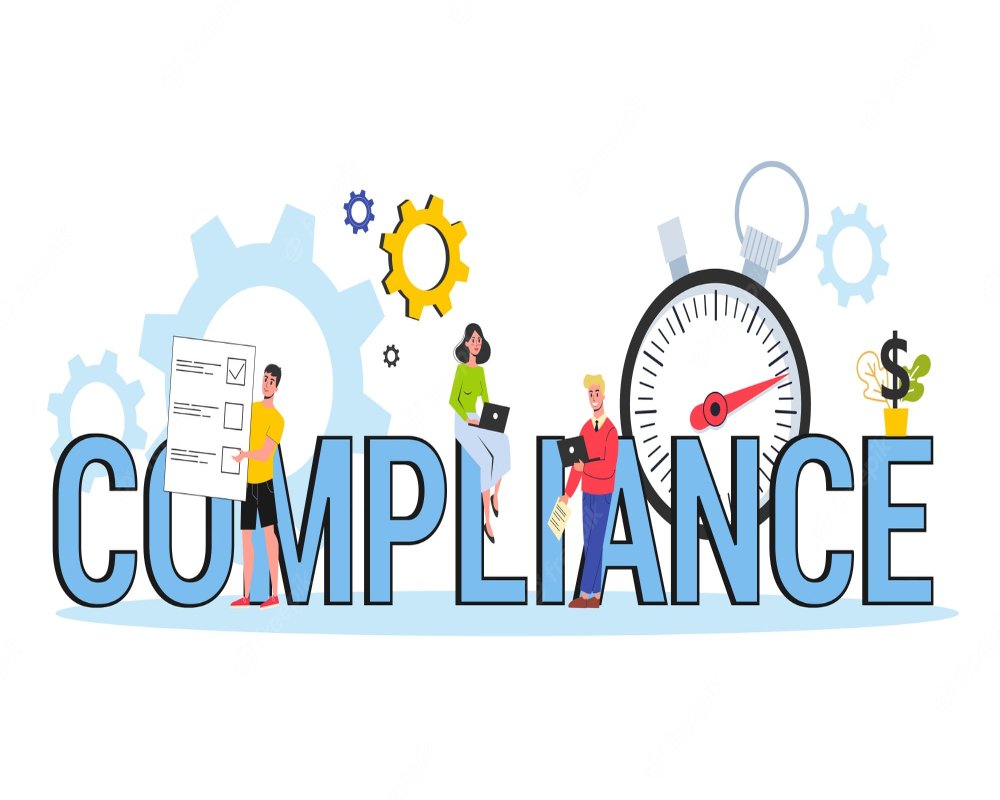Introduction
Industrial compliance approvals are an essential part of establishing and operating any industrial facility. These approvals span across various domains including land use, environmental regulations, construction safety, labor welfare, utility access, and operational licenses. The purpose of obtaining these approvals is to ensure that the industrial unit functions within the framework of legal, environmental, and social standards. A detailed understanding of the compliance requirements not only helps in avoiding legal complications and penalties but also establishes a foundation for safe, efficient, and sustainable industrial operations.
Land Use and Zoning Compliance
The first stage of industrial compliance begins with verifying that the land designated for development is legally authorized for industrial use. This involves securing a land use certificate or zoning approval from the local planning authority. If the land is not already zoned for industrial purposes, a land use conversion approval must be obtained. The developer is required to submit land ownership documents, site layout plans, and information regarding the proposed industrial activity. This clearance ensures alignment with the city’s master development plan and safeguards against illegal land development.
Environmental Clearances and Pollution Control
Industrial units must comply with environmental regulations by obtaining the necessary approvals from the environmental department or the pollution control board. This includes securing consent to establish and consent to operate, depending on the scale and nature of the project. In many cases, an Environmental Impact Assessment report must be prepared and submitted for review, particularly for projects involving hazardous materials or large-scale resource consumption. These clearances are granted only after the project demonstrates adequate environmental safeguards such as effluent treatment, emissions control, and waste management systems.
Construction and Building Permissions
Before any construction can begin, approval must be obtained from the municipal or industrial development authority. This involves submitting building plans, architectural drawings, and structural designs for approval. The plans must conform to national and regional building codes, including provisions for fire safety, emergency exits, ventilation, sanitation, and load-bearing capacities. Inspections may be conducted at different stages of construction to verify adherence to approved designs and safety norms.
Factory Registration and Licensing
Once the construction is complete and machinery is installed, the factory must be registered under the Factories Act or equivalent local legislation. This registration ensures that the factory meets the health, safety, and welfare standards required for workers. It requires submission of detailed information such as the number of employees, nature of operations, type of machinery used, and working hours. Only after receiving the factory license can production activities legally commence.
Labor Law Registrations and Social Security Compliance
Industrial units must register under various labor laws to ensure employee welfare and workplace safety. This includes registration with the Employee Provident Fund Organization, Employee State Insurance Corporation, and labor welfare boards. Employers must maintain accurate records of employment terms, wages, working conditions, and grievance redressal mechanisms. Additionally, permissions may be required for engaging contract labor or for employing women in specific shifts, depending on jurisdictional laws.
Fire Safety and Emergency Preparedness
A critical component of compliance is obtaining fire safety clearance from the local fire department. This clearance is issued after evaluating the layout and verifying the installation of fire extinguishers, hydrants, alarm systems, and escape routes. Factories that handle flammable or explosive materials may be required to implement additional measures such as sprinkler systems, gas leak detectors, and automatic fire suppression systems. Regular fire drills and staff training in emergency protocols also form part of the fire safety compliance.
Utilities and Infrastructure Access
Industrial facilities must obtain clearances for essential utility connections, including power, water, sewage, and telecommunications. The electricity board issues approvals based on the projected load and safety measures implemented for electrical infrastructure. Similarly, water supply and wastewater discharge are regulated by municipal bodies or environmental authorities to ensure that usage does not exceed permitted limits and that disposal practices do not harm local ecosystems.
Operational Licenses and Trade Registrations
In addition to the primary factory license, specific operational permits may be required depending on the nature of the industry. This may include hazardous material handling licenses, boiler operation permits, food processing licenses, or pharmaceutical manufacturing approvals. Registration under the Shops and Establishments Act may also be required for administrative or retail activities conducted within the factory premises. These licenses ensure that the business is recognized under relevant trade laws and is authorized to conduct its specific line of operations.
Periodic Renewals and Inspections
Many industrial approvals are time-bound and require periodic renewal. This includes environmental consents, factory licenses, fire safety clearances, and labor law registrations. Regular inspections by various authorities are conducted to ensure ongoing compliance. Non-compliance can result in penalties, suspension of licenses, or closure orders. Therefore, maintaining a compliance calendar and systematic documentation is essential for long-term operational stability.
Conclusion
The checklist for industrial compliance approvals encompasses a wide spectrum of legal and regulatory domains, each of which contributes to the lawful and sustainable functioning of industrial enterprises. From land use and construction permissions to environmental clearances, labor welfare, and fire safety, each component plays a vital role in ensuring that industrial activity is responsible, efficient, and legally sound. A comprehensive and proactive approach to compliance not only safeguards the enterprise from regulatory risks but also builds a strong foundation for reputation, investment readiness, and sustainable growth.
Hashtags
#IndustrialCompliance #ComplianceChecklist #RegulatoryApproval #SafetyStandards #QualityAssurance #IndustryRegulations #ComplianceManagement #ManufacturingStandards #RiskManagement #EnvironmentalCompliance #HealthAndSafety #ISOStandards #ComplianceAudit #OperationalExcellence #IndustryBestPractices #CertificationProcess #RegulatoryCompliance #ProcessImprovement #ComplianceTraining #IndustrialSafety


